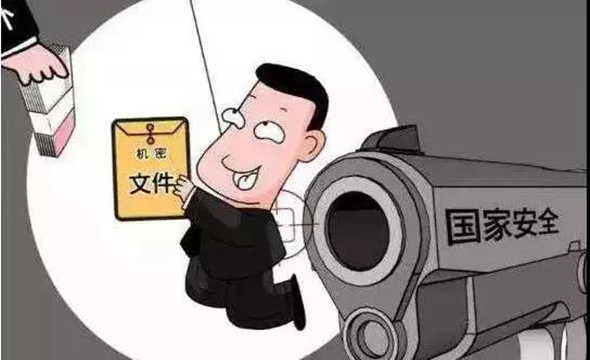Misinformation about China’s spy apparatus helps fuel a racist response in Washington and allied capitals. We must all must weigh in to improve the debate for the sake of both national defense and civil rights.

Chinese Communist espionage activities abroad, including in the U.S., are multi-faceted, and so the typical ad-hoc examinations by authors and journalists of the most outrageous individual cases are inherently misleading.
When we read articles and books that look only at a technology theft in Silicon Valley, or purloined agricultural trade secrets in Illinois, or a zany attempt by a woman to talk her way into Mara Lago, they are akin to the parable of the blind men examining the elephant: not able to see the entire animal, each pronounced it to be like a tree, a wall, a snake, or a rope after touching its leg, side, trunk, and tail.
This blind man’s assessment of Chinese espionage has led us to a dangerous fallacy, that Beijing employs tens of thousands of ordinary Chinese people in the United States and elsewhere to spy for the People’s Republic. The proponents of this view use a deeply flawed analogy, nicknamed the “grains of sand” approach to intelligence, to compare China’s security services to those of the U.S. and Russia:
“If a beach were a target, the Russians would send in a sub, frogmen would steal ashore in the dark of night and collect several buckets of sand and take them back to Moscow. The U.S. would send over satellites and produce reams of data. The Chinese would send in a thousand tourists, each assigned to collect a single grain of sand. When they returned, they would be asked to shake out their towels. And they would end up knowing more about the sand than anyone else.”
The author of the article carrying this quote concluded: In other words, the Chinese have infinite patience. [1]
Tarring an entire ethnic group with the accusation of subversion or disease is a path we have walked before, with the Chinese Exclusion Act of 1882 and the internment of Japanese-Americans in World War Two. Countless racist attacks against people of Asian descent over COVID-19 occur even to this day. Racism shows itself in these examples as the handmaiden of incompetence.
Even worse, in a breathtaking example that may represent only be the tip of a secret policy iceberg, President Trump reportedly told a group of American businesspeople in August 2018 that “almost every (Chinese) student that comes over to this country is a spy.” [2]
Such tropes are inconsistent with available evidence, do little to inform policymaking or the general public, and encourage racial suspicion and stereotyping. Recent arrests of PRC citizens in Florida and elsewhere, caught in amateur acts that seem like clumsy espionage, only confuse the picture. Though it is tempting to conclude that such cases show that Chinese spies are everyday people who lurk everywhere, more careful study is needed to define them in the context of the larger set of cases reflecting standard espionage tradecraft.
Chinese Communist espionage has been professionally run since its founding in 1927. Today, Beijing’s Ministry of State Security does not employ masses of ordinary Chinese agents in its efforts. Like other intelligence services, the MSS minimizes those involved in each operation in order to maintain secrecy, using practices that harken back to the Chinese Communist Revolution and reflect standard espionage tradecraft.
Setting aside their famous triumphs in hacking U.S. government and private sector databases, Chinese espionage “human intelligence” operations normally involve secret payments to specific recruits for information of interest to Beijing:
– Colonel James Fondren for classified information (1999-2010);
– Retired DIA officer Ron Rockwell Hansen for high-paid “consulting” (2014-2018);
– Gyantsan Dorjee for information on Tibetan exiles in Europe (2014-2018);
– Jerry Chun Shing Lee for U.S. national defense and CIA information (2010-2018), and
– Chi Mak for passing U.S. Navy submarine technology to China (1996-2005).
It is true that Chinese state-owned enterprises are allowed to go abroad on their own and, sometimes clumsily, steal technology. As well, some individuals engage in reckless amateur thefts and other activities. A classic case of this sort is described in detail in Mara Hvistendahl’s The Scientist and the Spy (Riverhead/Penguin, 2020).
In spite of the fact that the main character in this true story, Robert Mo, was controlled by his Chinese agricultural company, and not a professional intelligence officer, he was carefully chosen for his mission and kept his activities secret even from his own family in Florida.
In short, the idea of every Chinese person being a potential spy is not only harmful to civil liberties; it is an inefficient waste of time that makes real espionage harder to detect.
Rather than allow our fellow citizens and elected representatives to cling to the indulgence of emotional reactions to the growing problem of Chinese Communist espionage, we must use facts and data to improve our understanding of it – not the least so that U.S. agencies become more publicly accountable for how they prioritize and conduct their work.
- David Wise, “America’s Other Espionage Challenge: China https://www.nytimes.com/2018/03/05/opinion/china-espionage.html. That quote was also cited this year: https://www.washingtonexaminer.com/news/as-us-warns-against-spy-threat-chinese-nationals-keep-getting-arrested-in-florida. Wise also wrote a book that provided the same sort of incomplete picture of the problem: Tiger Trap: America’s Secret Spy War with China (New York: Houghton Mifflin Harcourt, 2011)
- https://www.politico.com/story/2018/08/08/trump-executive-dinner-bedminster-china-766609.